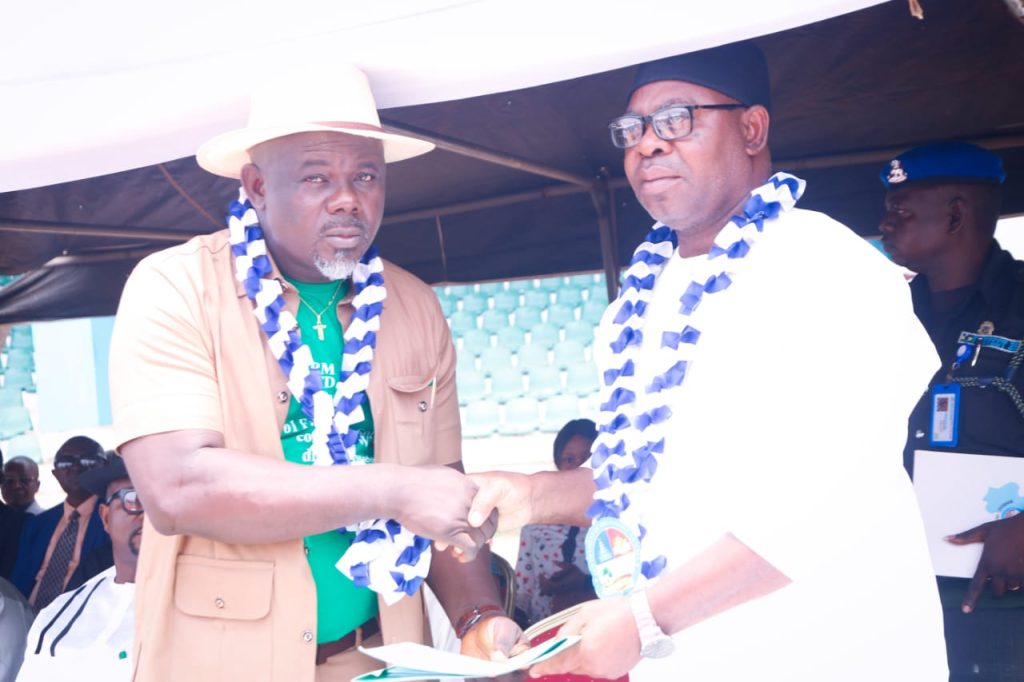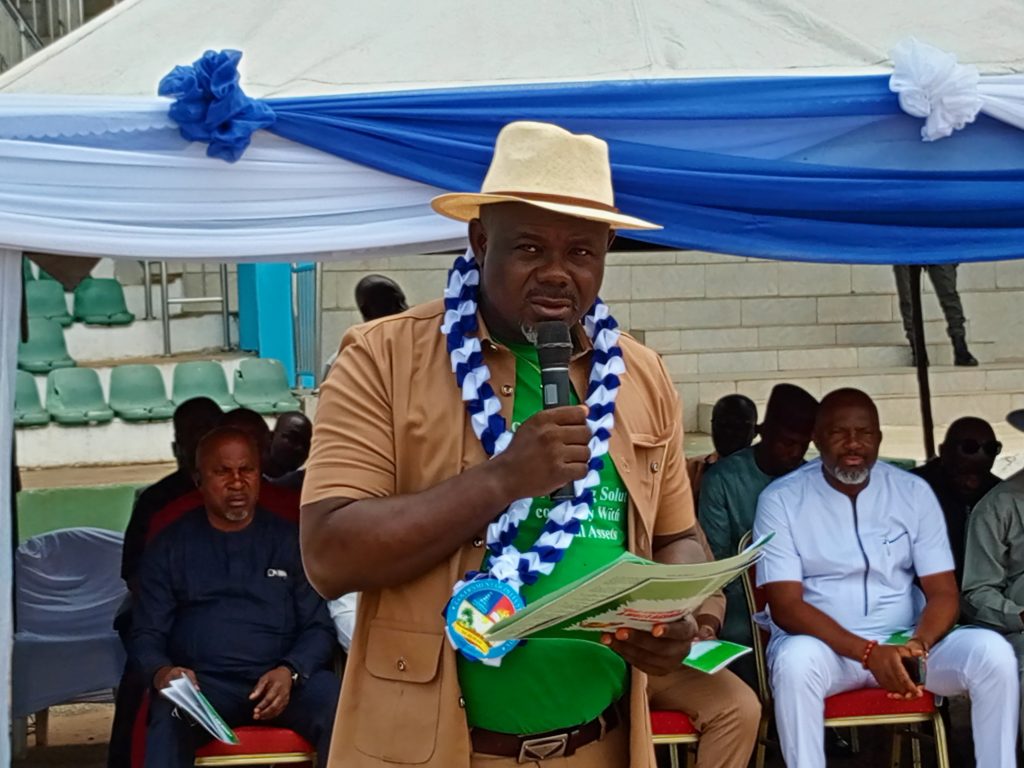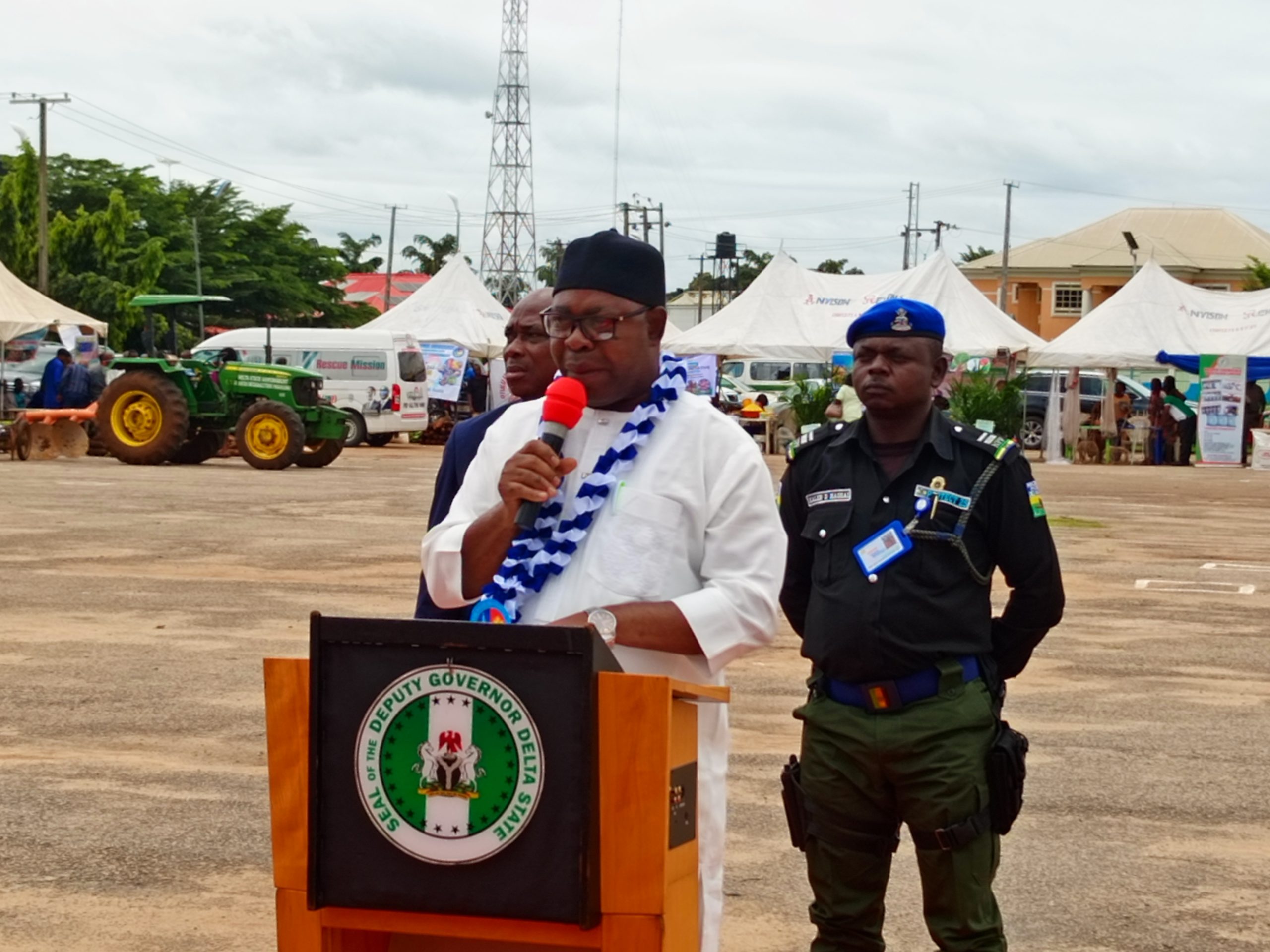The Delta State governor, Rt Hon. Sheriff Oborevwori has said to better tackle the challenges facing farmers, his administration will keep encouraging farmers with programs that focus on building a resilient food system using flood-tolerance crop varieties implementing soil, water-conservative techniques and climate-smart agriculture.
The governor made this known at the 2023 World Food Day celebration with the theme: “Water is life, water is food, leave no one behind” held at Cenotaph in Asaba, the state capital on Monday.
The governor who was highly represented by his deputy, Sir Monday Onyeme said there is a great potential to further enhance the state export capacity by utilizing the water resources and the arable land, which will help to create new jobs, contribute to economic growth, and also improve food security.
The Governor noted that World Food Day aimed to promote global awareness and action for those who suffer from hunger and to highlight the need to ensure healthy diets for all.

He explained that water makes up over 50 percent of our bodies and covers about 71 percent of the Earth’s surface, only 2.5 percent of water is fresh, suitable for drinking, agriculture, and most industrial uses.
He added, “It is important to emphasize that water is a driving force for people, economies, and nature and the foundation of our food.
He maintained that “Data from FAO, further shows that the global food system relies heavily on water resources, with Agriculture consuming 72 percent of the world’s fresh water.
“In addition, 95 percent of our food is produced on land (soil and water) and 600 million people rely on aquatic food systems for livelihood.
“The increasing stress on our planet’s water resources due to increasing population growth, urbanization, economic development, and Climate Change, makes effective water management essential for sustainable food production,” he stated.
He said Delta State was blessed with an environment suitable for agriculture, fish production, and its value chain.
“With land that is suitable for the cultivation of virtually every crop, the state has 17, 698 square kilometers of land mass with 1,770 square kilometers that is made up of freshwater swamp and 5,840 square kilometers of mangrove swamp.
“However, pollution is a major challenge that is hampering the full utilization of water resources in our state and the country in general.

“Due to pollution as a result of oil exploration activities, we cannot fully harness the abundant economic potentials of our rivers and rivulets. It is common to see waste dumped in rivers and streams.
“Poor water quality is affecting our people, the economy, and the environment. This is an area that the Federal Government and the United Nations should tackle if we are to have full benefits of our water resources today and in the future.”
Governor Oborevwori also said floods had become a recurring decimal in Delta and most other states of the country, adding, “This has made farmers not sure if they will have full economic benefits from their yearly activities in the area of cultivation of crops or engaging in fish farming.
“The loss by farmers, as a result of the flood, cannot be quantified as its psychological effects on our people are enormous. Our state, Delta, is listed among the states that will be affected by floods this year.
“As a government, this warning has become important, though, the State Emergency Management Agency(SEMA) and the State Flood Disaster Management Committee have put measures in place to mitigate the effects of the flood on our people, should it occur.
“We shall work with other governmental agencies, organizations, and individuals to tackle the challenges facing our farmers as we deliver on our M.O.R.E Agenda which was designed to advance Deltans positively in all spheres of life.”
He expressed contentment at the high demand for agricultural produce from Delta State in different parts of the world, from oil palm, maize, cassava, yam, fruits, vegetables, tomatoes, pepper, poultry, and fish from both fresh water and brackish water to tapioca, spices, among other agricultural products and by-products.
“We shall keep encouraging our people with our programs which focus on building a resilient food system through improved agricultural practices, using flood-tolerant crop varieties, implementing soil and water conservation techniques, and climate-smart agriculture.
“There is a great potential to further expand our export capacity by utilizing our abundant water resources and arable land. This would help to create new jobs, contribute to economic growth, and also improve food security. Therefore, the agricultural sector is one of the priority areas of my administration,” Oborevwori stated.
On his part, the Delta State Commissioner for Agriculture and Natural Resources, Hon. Perekebena Perez Omoun Esq, said in a bid to maximize the rich water resource potential and ensure food security, the state government has placed a remarkable premium on the Agricultural sector by embarking on various programs aimed at improving the Agricultural value chain in line with the MORE Agenda of the Governor.

He said the theme of this year’s celebration highlights the critical role of water for life on earth and water as the foundation for crop production, livestock, and fisheries.
He added that it also seeks to raise global awareness about the importance of managing water wisely as rapid population growth, economic development, urbanization, and climate change threaten water availability.
According to Hon. Omoun, the World Food Day celebration is annually observed on October 16, to reflect on the effect of poverty and hunger, vis-a-vis the availability of food for the ever-expanding world population.
He put in that the Food and Agricultural Organization (FAO) of the United Nations, is at the forefront of the international efforts to combat poverty and battle hunger across the globe, particularly in developing nations which includes Nigeria.
He said the Greenhouse Project, Rice Value Chain Development Programme, Cassava Development Programme, Oil Palm Small Holder Scheme, Coastal Fisheries, Aquaculture, Risk Mitigation Plan/Programmes, Input Delivery Service, Agricultural Extension Services, and Flood Management are different programs to ensure all Deltans have access to adequate quality and quantity of food and water.
He called on all stakeholders to contribute to developing a food system that will help conserve the water and soil resources. While appealing to all farmers to embrace new technological systems, climate-smart agriculture, and other modern practices that will build a sustainable food system within the state with proper water management.
The celebration also spotlighted a food exhibition by farmers across the state where prizes were given to the best exhibitors.











